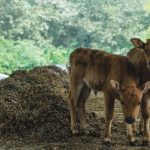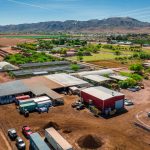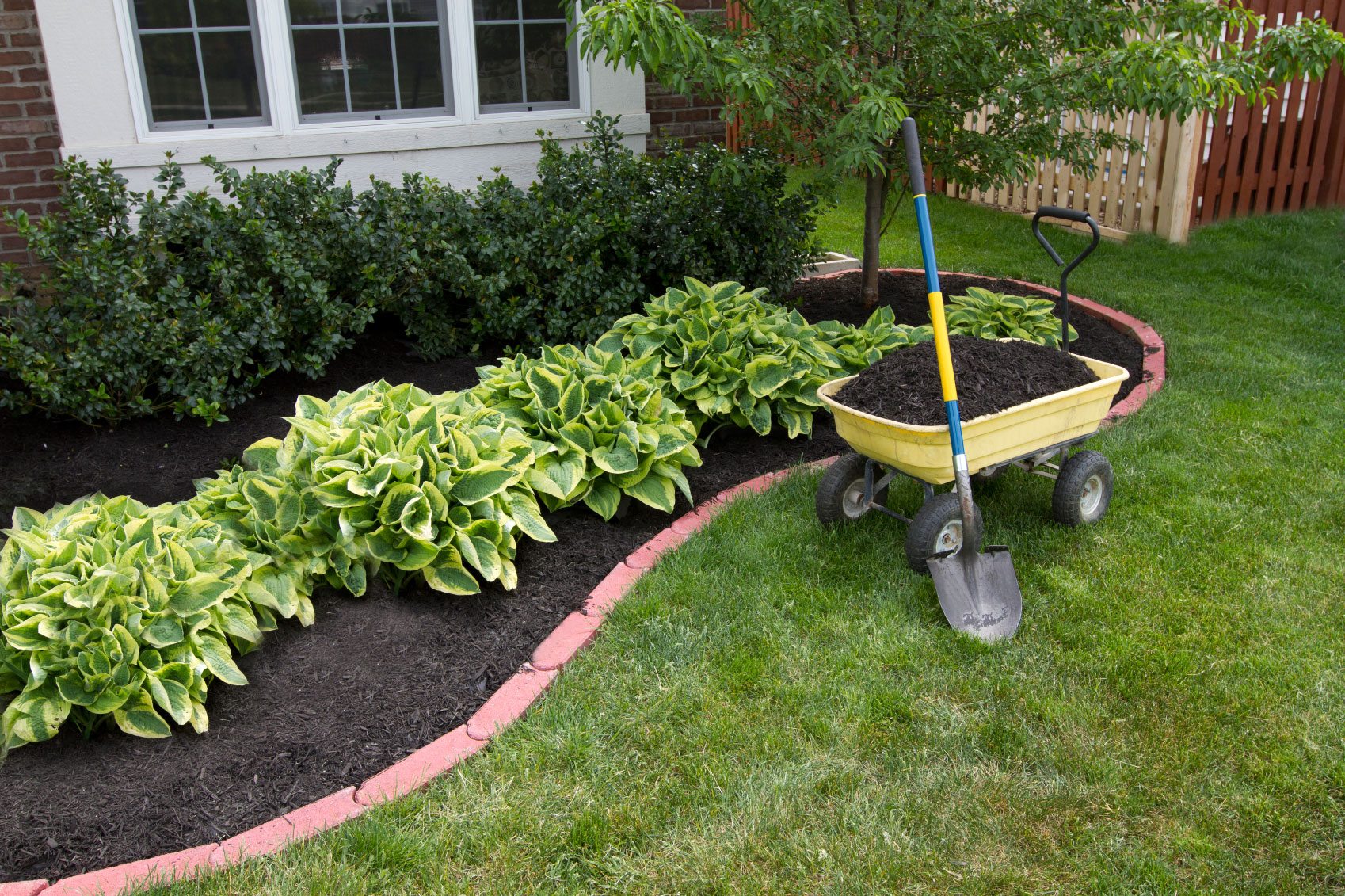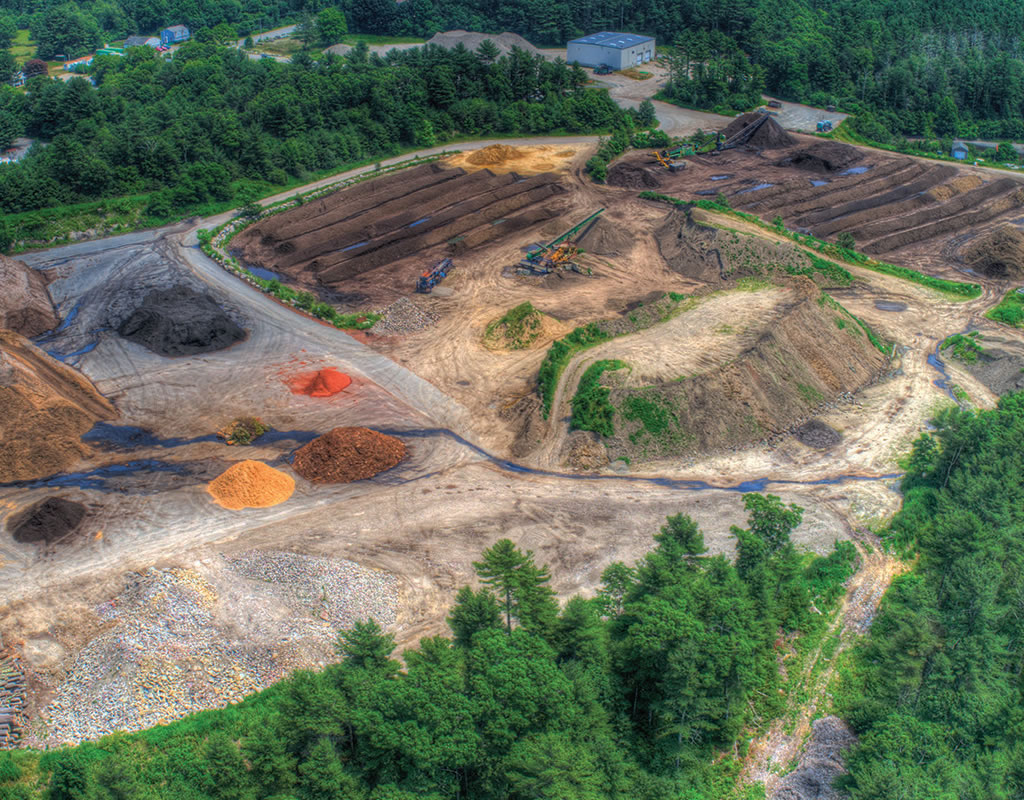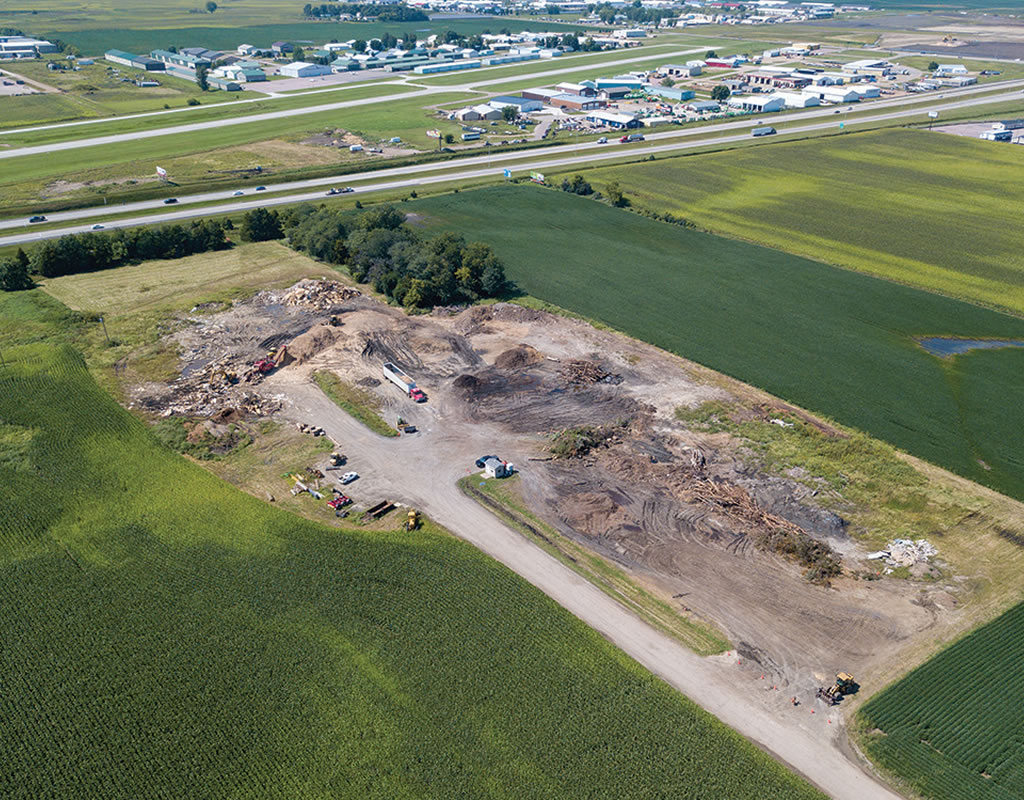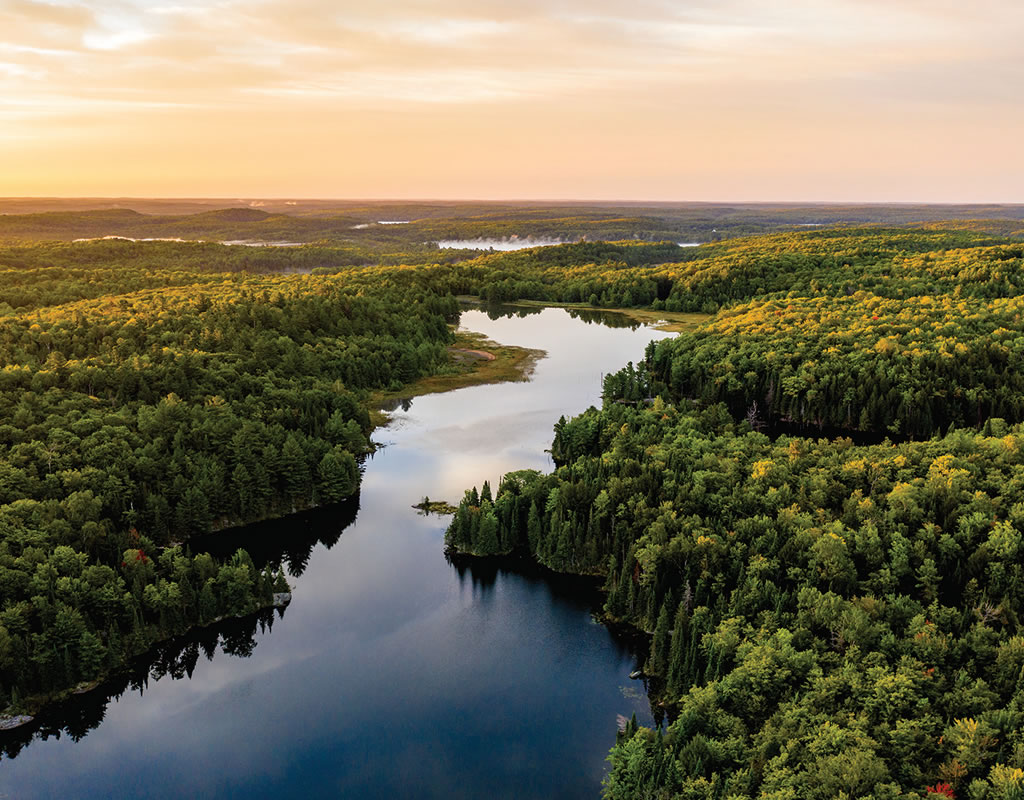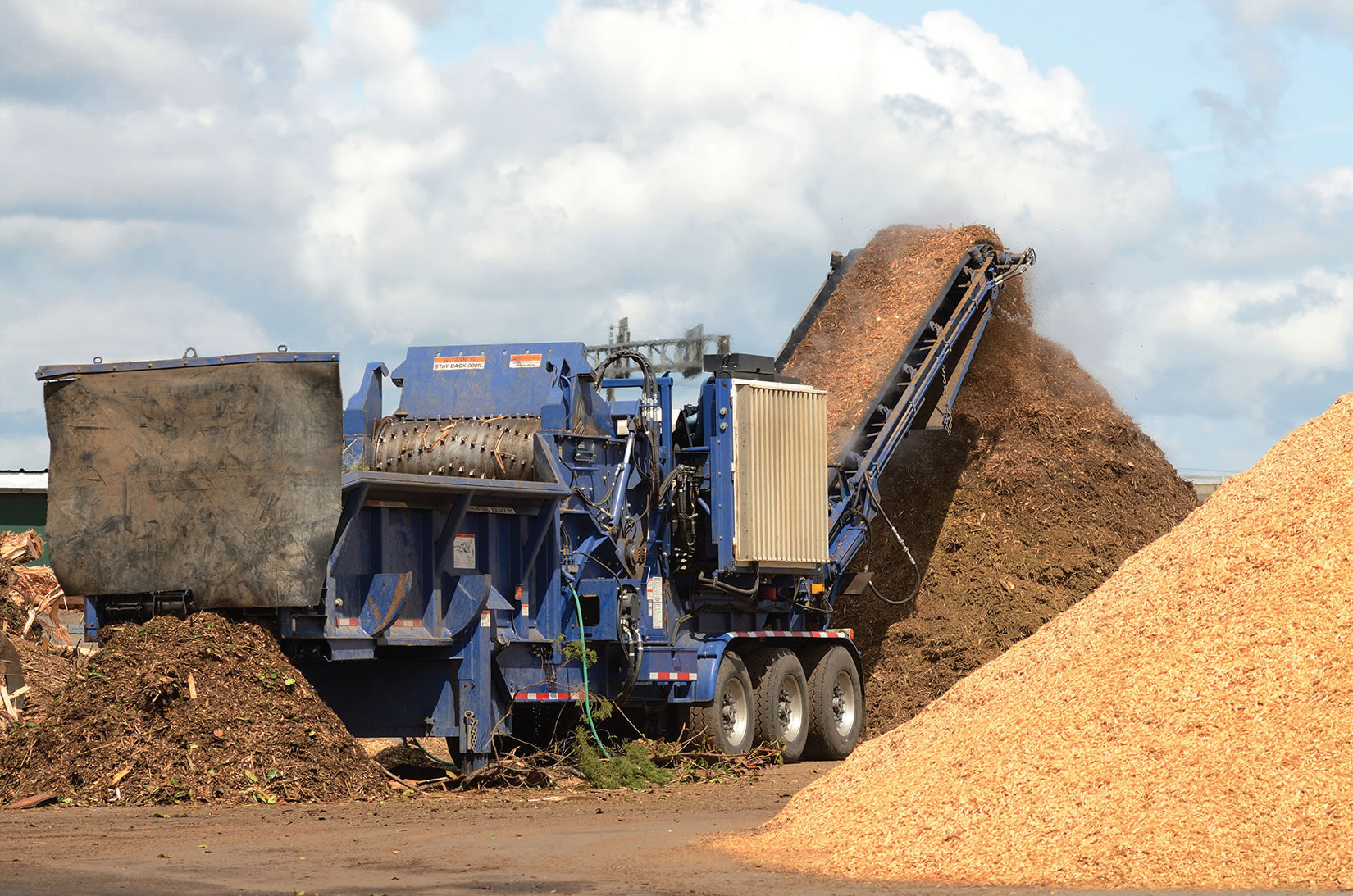By P.J. Heller
Toothpaste. Kitty litter. Outdoor pizza ovens. Ceiling tiles. Garden and landscape growing material. Pipe insulation. Soaps. Environmental spill cleanup kits.
Those items and more have one ingredient in common that many people may not be aware of: perlite.
“Perlite is all around us,” notes Michael Dunlavey in discussing a mineral found throughout the horticultural, construction and industrial industries.
Dunlavey is president of Perlite Vermiculite Packaging Industries (PVP Industries), a family-run business that supplies both perlite and vermiculite to customers worldwide. Most of the company’s business – which is roughly 60 percent in the horticulture market, 30 percent in the industrial sector and 10 percent in the construction area -- is within 500 miles of its North Bloomfield, Ohio, plant, although niche sales have gone to Alaska, Switzerland, Bermuda and Trinidad and Tobago.
“We will ship anywhere,” Dunlavey says. “We will service anybody that we can who is willing to work with us.
“Horticulture is still our mainstay,” he adds. “Perlite and vermiculite are extensively used in many, many, many different industries . . . There are a thousand different uses for each mineral.”
Dunlavey, along with company vice president Lenny Maheu and plant manager David Sinn, have spent their entire lives working in the business.
“I grew up around the kitchen table learning about this stuff my whole life,” says Dunlavey, whose father, Paul Dunlavey, started the company in 1984 with Colin Urbanowicz. Production began a year later.
The company was launched after Cleveland Builders Supply decided to disband its gypsum division, where Urbanowicz had worked. Dunlavey was an outside accountant hired to evaluate the company’s various divisions. The two men joined forces in the new business.
“Colin saw a vision that the horticulture industry was going to be the mainstay for perlite and vermiculite in the future,” Dunlavey recalls. “My father was a numbers guy, a CPA, not an operations person.”
Paul Dunlavey became the primary owner in the 1990s and Maheu – who has been with the company since its start 39 years ago and is its longest serving employee – helped the business carry on. Sinn, the plant manager, has been with the company for 37 years. Dunlavey passed away in November 2022.
Michael Dunlavey joined the business about 15 years ago, first working in the plant for two years and then moving into sales. He previously worked doing landscape construction and maintenance for landscape companies throughout the greater Cleveland area.
“I got my first job landscaping at 13 years old because I wanted to get a new bicycle,” he says. “I have a green thumb in my background.”
Today, Dunlavey heads PVP Industries which employs 20 people.
“I would like to operate closer to 30 people but with the labor market the way it is right now, we’re holding strong at 20,” he says.
The plant, on nearly 20 acres, includes two 80-by-250-foot buildings which each contain an Incon perlite furnace, and a large fabric structure that houses raw materials. The company also operates a Bouldon Lawson mixing line consisting of five 10-yard hoppers, three small hoppers and a liquid feeder with a 250-gallon storage tank. In addition to selling truckload quantities of perlite and vermiculite, it packages its own products in its easily recognizable white and green bags and does co-packing and private label packing for other companies, some of which end up being sold by aspiring entrepreneurs on Amazon.
“Ten years ago, we would sell one or two truckloads every quarter to Amazon,” Dunlavey says. “Right now, we’re shipping three to five truckloads a week, all throughout the country.”
Another fabric building for warehouse space is expected to be added. Dunlavey is also eying other sites for another perlite factory because of the growth potential.
“I’m doing things to try to advance the company, to keep us relevant in the marketplace and move us into the 21st century of a soil-producing, mineral aggregate-producing operation,” he says. Like others in the horticulture industry, he recognizes how seasonal the market is with companies going through highs and lows.
During the Covid-19 pandemic, when people stayed home from the office, the perlite business, as well as other garden-related product sales, boomed as homeowners worked in their yards and gardens. Vermiculite, however, was in short supply due to supply chain problems, primarily overseas shipping and port issues, Dunlavey says.
“We kind of lost our way prior to Covid,” he reflects. “People got caught up in the rat race of life. Covid sort of slowed us down a little bit. One thing about gardening and having a green thumb is it’s very therapeutic. A lot of people got into it and experienced the stress relief of working in the garden, as well as doing different hobbies and projects.
“Schools are now bringing gardening programs back into the curriculum, offering different classes and more hands-on learning in gardening and landscaping that is critical to society,” he says. “You can't survive as a society without food. These products [perlite and vermiculite] make poor soil act better and improve the quality so you can have a successful garden. I think every garden should have perlite and vermiculite in it.”
Vermiculite mixes with the soil and helps to retain water; it can soak up more than three times its volume in water. It is typically mixed with soil, peat, composted pine bark, fertilizers, pesticides and herbicides and promotes faster root growth and quick anchorage to young roots.
Perlite increases drainage to the soil and mixes with it. When bulk perlite is mixed with organic compost, natural soils or composted bark, it helps anchor the roots of young plants so they grow stronger.
Both have neutral pH levels. and help with soil aeration.
“Wherever there’s sandy soil, there’s a perlite or vermiculite particle size that can help,” Dunlavey says. “If you have clay-like soil, you want the bigger particles because it helps break the clay apart. If you have soil that is too moist, you want bigger particles so more air gets to the roots. If you’re in a very dry environment like California or Arizona, you want finer particles because they maintain more moisture. It’s very adaptive.”
Dunlavey sees huge growth potential in the construction industry, where perlite is already used in such things as ceiling tiles, roof insulation products, pipe insulation, filling in masonry block construction, and refractory bricks designed to withstand very high temperatures.
“Construction applications for expanded perlite are numerous because it is fire resistant, an excellent insulator, and lightweight,” the U.S. Geological Survey notes, adding “Novel and small markets for perlite have increased during the past 10 years; cosmetics, environmental remediation, and personal care products have become increasing markets for perlite.”
Perlite is also used as a filter aid in industries ranging from food processing to pharmaceuticals. It is also used in water and wastewater treatment.
Another growing market Dunlavey sees is controlled environment agriculture (CEA), which creates a fully controlled environment to optimize horticultural practices for growing high-quality plants.
PVP Industries uses between 10,000 and 17,500 tons of perlite annually, the equivalent of 100 to 175 one-hundred-ton rail cars. Vermiculite usage is about 40 percent of that total and is brought in by truck and shipping container.
The company’s primary source of perlite -- a pure naturally occurring volcanic glass created when volcanic obsidian glass gets saturated with water over a long period of time -- comes primarily from mines in Oregon and California. Deposits are located from Alaska to the Panama Canal, throughout the entire Rocky Mountain region and in Greece, Turkey and China.
“Although China was the leading producer, most of its perlite production was thought to be consumed internally,” according to 2022 statistics from the USGS. “Greece and Turkey remained the leading exporters of perlite.”
PVP Industries takes perlite in its raw glass form and heats it to approximately 1400 degrees Fahrenheit so the moisture inside the glass evaporates and creates tiny bubbles.
“This heating process expands the raw perlite glass up to 20 times its original volume, so one 100-ton rail car [of perlite] can expand to 20 rail cars,” Dunlavey says.
“Many compare this process to that of popping corn kernels,” he adds. “When corn is in its raw kernel state and then heated, the kernel expands (or pops), turns white and is extremely lightweight.”
The material is then screened for different particle sizes and sold to industry. The horticulture market prefers the bigger material while the industrial and construction industries prefer the smaller material.
Because both horticultural perlite and vermiculite are lightweight, they are ideal for use in rooftop gardens. A perlite and peat moss mixture can reduce planter weight by at least 60 percent compared to regular wetted soil, according to the Perlite Institute, an international trade association based in Harrisburg, PA.
While perlite is abundant – less than 2 percent of the reserves worldwide have been used, Dunlavey estimates – vermiculite is a much rarer mineral. PVP’s primary source of finer grade vermiculite comes from mines in Virginia and South Carolina; coarser grade vermiculite comes from Africa, brought in by shipping container. Other sources include Turkey, China and Brazil.
“The United States, Africa and China are the three biggest players in the vermiculite world,” he says, adding that its cost is usually twice the price of perlite.
“The majority of our business is perlite, but we sell vermiculite because the two kind of go together,” explains Dunlavey, who is serving his third term on the board of directors of the Perlite Institute.
PVP Industries sells horticultural perlite and vermiculite to the professional market as well as offering custom blend soilless mixes.
“We will blend to any formula a customer desires,” Dunlavey says. “We prefer if it uses perlite or vermiculite as an ingredient, but it doesn’t have to.”
The company features a range of consumer products, including perlite grow bags for new plants, rooting cuttings and hydroponic gardening. The company also markets its Magik-Moss line on a primarily regional basis that includes a potting soil containing vermiculite, perlite and peat; an African violet potting soil; a cactus potting soil, and a seed starter soil mix. Both the seed starter and the potting soil mix contain the same soil mixes used in the company’s professional growing media.
Being a smaller company with extensive experience in the industry allows PVP to give more personal service to customers, according to Dunlavey. And offering both bulk perlite and vermiculite gives the company an edge on its competition, he adds.
“Most perlite companies just do perlite, or vermiculite companies just do vermiculite. Some do both out of the same plant. We do them both here regularly,” he says. “We know how to run perlite and vermiculite through the same furnace. We figured it out, out of necessity 40 years ago, of how to make it work and we’ve been doing it ever since.”
Dunlavey says PVP Industries likes to adhere to the KISS method of doing business by keeping things as simple as possible.
“The KISS method goes great with perlite,” he says. “There’s nothing complicated. It’s a rock. It came from a lava flow. We humans know how to use rocks in so many ways.”
Related News
Subscribe Today
Every other month, Soil & Mulch Producer
News brings you important stories about:
• New Technology
• Products
• Industry News
• Research Studies
Soil & Mulch Producer News features articles and services relevant to your daily operations.

